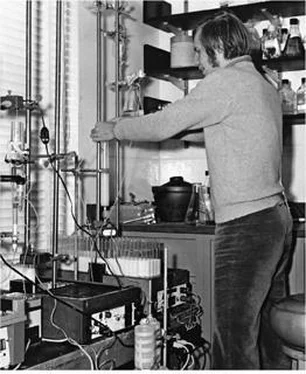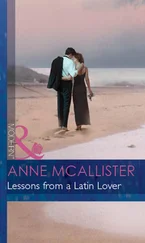James Watson - AVOID BORING PEOPLE - Lessons from a Life in Science
Здесь есть возможность читать онлайн «James Watson - AVOID BORING PEOPLE - Lessons from a Life in Science» весь текст электронной книги совершенно бесплатно (целиком полную версию без сокращений). В некоторых случаях можно слушать аудио, скачать через торрент в формате fb2 и присутствует краткое содержание. Жанр: Биографии и Мемуары. Описание произведения, (предисловие) а так же отзывы посетителей доступны на портале библиотеки ЛибКат.
- Название:AVOID BORING PEOPLE: Lessons from a Life in Science
- Автор:
- Жанр:
- Год:неизвестен
- ISBN:нет данных
- Рейтинг книги:5 / 5. Голосов: 1
-
Избранное:Добавить в избранное
- Отзывы:
-
Ваша оценка:
- 100
- 1
- 2
- 3
- 4
- 5
AVOID BORING PEOPLE: Lessons from a Life in Science: краткое содержание, описание и аннотация
Предлагаем к чтению аннотацию, описание, краткое содержание или предисловие (зависит от того, что написал сам автор книги «AVOID BORING PEOPLE: Lessons from a Life in Science»). Если вы не нашли необходимую информацию о книге — напишите в комментариях, мы постараемся отыскать её.
AVOID BORING PEOPLE: Lessons from a Life in Science — читать онлайн бесплатно полную книгу (весь текст) целиком
Ниже представлен текст книги, разбитый по страницам. Система сохранения места последней прочитанной страницы, позволяет с удобством читать онлайн бесплатно книгу «AVOID BORING PEOPLE: Lessons from a Life in Science», без необходимости каждый раз заново искать на чём Вы остановились. Поставьте закладку, и сможете в любой момент перейти на страницу, на которой закончили чтение.
Интервал:
Закладка:
Conceivably, a major impediment to our effort lay in Jonas Salk's impending creation of a new high-powered research institute for biology at La Jolla. He bragged about its future oceanfront location on a stopover at Harvard in the fall of 1959 on his way to visit his son at school at Exeter. There he envisioned recruiting leading biologists, including me, to engage in cutting-edge research with no teaching responsibilities. Behind Jonas's Utopian vision was Leo Szilard's desire to create a first-class environment that he could use as a permanent base for his simultaneous forays into biology and nuclear weapons politics. Leo strongly wanted Jonas as its head, believing his fame would make Hollywood Jewish money easy to get. My counterargument that Jonas's intellectual distinction was not much greater than Nathan Pusey's did not faze him. Leo countered that the bylaws of the new institute could be set up to put control of appointments and finances in the hands of its leading scientists. I was, in fact, more intrigued by the recent offer to be one of the founding biologists at a
new University of California campus also to be located in idyllic La Jolla. It was to be adjacent to the land that Jonas coveted for his purposes.My formal visit to see the proposed site of the U of C's new La Jolla campus occurred in early March 1960, timed to coincide with a gathering of prospective appointees to what later would be called the Salk Institute. Awaiting me at the San Diego airport was Jonas with a white stretch limousine to take us to a motel on the Pacific Ocean. The wheels, Jonas explained, had been provided by his longtime patron, the National Foundation for Infantile Paralysis, still then headed by former Franklin Roosevelt lawyer and confidant Basil O'Connor, who believed that only by such grand conveyance would Jonas get the respect due him for his role in stopping polio. Upon arriving at the oceanview site of the future Salk Institute, I saw that Matt Meselson and Mel Cohn also had been called to La Jolla by Jonas. I quietly told everyone that Meselson and Cohn would both soon also be receiving offers from Harvard. Unusually tense was a final luncheon jointly hosted by Jonas and the oceanographer Roger Revelle, head of the venerable Scripps Institution of Oceanography and the main instigator of the new U of C campus. Roger, who had married into the Scripps newspaper fortune, did not take kindly to Jonas's opening remarks that he and Jonas respectively play mama and papa at the occasion.
I left San Diego not at all tempted to move to its perfect climate. Instead I was keen to return to Harvard in anticipation of the impending visit of Peter, Jean, and Caroline Medawar. Three years had passed since we were all together on Skye and in the meanwhile Caroline had almost finished her Cambridge education. Peter was to give that year's Prather Lectures in the Biology Department. After the last of his three lectures was delivered, I made the mistake of inviting Caroline to go skiing in Vermont. Her awkwardness as a beginner was compounded by the seemingly fearless downhill glide of a young Radcliffe student I had also asked along. In a sulk at being outclassed by a girl who also had brains, Caroline went off to join her parents in New York, leaving me to realize once again that you shouldn't pay simultaneous attention to two girls.
Fortunately, a major conceptual breakthrough was soon to emerge from my lab. Late in 1959, as an editor of the newly founded Journal of Molecular Biology, I received a manuscript from Urbana by Masayasu Nomura, Ben Hall, and Sol Spiegelman on T2 RNA. My initial reading immediately led me to doubt its central conclusion, that the T2 RNA sedimented as if it were a special form of the small ribosomal subunit. Believing the experimental facts should be known widely, even if they were possibly wrongly interpreted, I accepted the manuscript for publication. Soon afterward I suggested to Bob Risebrough, just back from more than a year on the Indian Ocean, that he repeat the experiments done at Urbana in the hope that we might at long last see the RNA templates for protein synthesis. It had long mystified me why Bob had so precipitously vamoosed to sea. Now I took comfort in learning that it was not from my lab and its experiments that he had fled but from an entanglement with a married woman. Hoping this mess was now behind him, Bob wanted to get back in the game.
In the Harvard Biolabs
Within six weeks, Bob cut to the heart of the T2 RNA's special nature. Using sucrose gradients containing high (10”2M) levels of Mg++ ions, all the T2 RNA was seen to have bound to the 70S ribosome complex of the big and small ribosomal subunits. In contrast, when Bob followed sucrose gradients containing lower (io”4M) Mg++ levels, the T2 RNA sedimented as free RNA and not as part of either the smaller or larger ribosomal subunits. Excitedly we realized that ribosomal RNA never orders amino acids during protein synthesis. Instead their respective ribosomes are nonspecific “factories” in which the T2 RNA templates order amino acids during protein synthesis. That such messenger RNA had not been seen before reflected the fact that, in most cells, much more ribosomal RNA is made than messenger RNA. But following infection of bacteria by T2-like phages, all host-specific RNA synthesis stops. All the RNA molecules synthesized during phage infection are made on T2 DNA templates.
A week later I flew down to New York City, trying without success to resume my friendship with Caroline Medawar, who was spending the weekend with her parents at Rockefeller University. Over the same weekend I visited Leo Szilard, at this time a patient at Memorial Hospital. Just before Christmas the awful news had reached me that Leo had bladder cancer and that diagnosis might have come too late. Fortunately, by the time I saw him he had taken charge of his radiation therapy and was soon to emerge totally cured. He immediately wanted to gossip about my recent visit to San Diego, while I wanted to talk about our big T2 RNA breakthrough. He said he would take my idea seriously only when messenger RNA molecules were shown to exist in uninfected as well as phage-infected cells. I told him this was to be our next research objective. A young French biochemist from the Institut Pasteur, Francois Gros, was to come to Harvard for the summer to search for messenger RNA in uninfected E. coli cells.
My main goal soon became persuading Matt Meselson to accept Harvard's offer, not Jonas Salk's. His visit to look us over came during a week of fortuitously perfect April weather, a seduction in itself
compared with Pasadena smog. Matt, unlike Benzer, quickly said yes to Harvard, telling Paul Doty and me that he would arrive as soon as appropriate research space could be renovated. Mel Cohn, in contrast, opted for the Salk Institute, and Aaron Moscona, to my never hidden delight, decided to remain in Chicago. Also to Harvard's long-term benefit was the acceptance of Keith Porter. In contrast, John Torrey's decision to leave England meant that botany at Harvard would likely continue intellectually vapid.During that time, Celia Gilbert often invited me for vodka-dominated meals at which one of Wally's young colleagues, the theoretician Sheldon Glashow, was often present. Wally was then twenty-eight years old and had been an assistant professor of physics for two years. Surprisingly, he now found himself more excited by our T2 RNA experiments than by his own attempts at high-level physics. Eagerly he was soon to drive up with Alfred Tissières, Francois Gros, and me to the 1960 Gordon Conference on Nucleic Acids in New Hampshire, afterward assisting Francois in his summer pursuit of a T2-like RNA in uninfected bacterial cells. Most conveniently, Francois and his wife, Francoise, also a scientist, were living in the tiny 10^ Appian Way flat that my father had moved into two years before upon his early retirement from his job in Chicago. Dad was off on a lengthy tour of Europe, having enjoyed a similar trip the year before. To my delight these trips showed that he could now be on his own for long periods, coping with if never quite moving beyond the loss of my mother.
Читать дальшеИнтервал:
Закладка:
Похожие книги на «AVOID BORING PEOPLE: Lessons from a Life in Science»
Представляем Вашему вниманию похожие книги на «AVOID BORING PEOPLE: Lessons from a Life in Science» списком для выбора. Мы отобрали схожую по названию и смыслу литературу в надежде предоставить читателям больше вариантов отыскать новые, интересные, ещё непрочитанные произведения.
Обсуждение, отзывы о книге «AVOID BORING PEOPLE: Lessons from a Life in Science» и просто собственные мнения читателей. Оставьте ваши комментарии, напишите, что Вы думаете о произведении, его смысле или главных героях. Укажите что конкретно понравилось, а что нет, и почему Вы так считаете.












